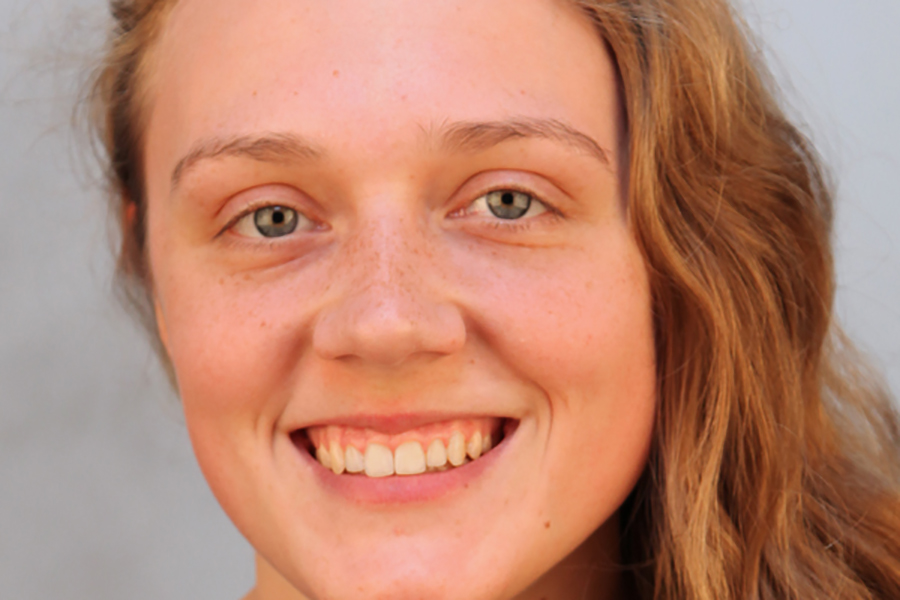Margaret Scheiner

"Innovate to improve quality of life."
College: FAMU-FSU College of Engineering
Degree Program: Industrial Engineering
Degree: Doctorate
Awards: P.E.O Scholar Award (2017); Lindau Nobel Laureate Meeting Delegate (2016); Zonta Amelia Earhart Fellowship (2016)
Why FSU?
Going to graduate school is a commitment and takes some significant consideration! The key factors for me were: research topic, research group, facilities, financial support, and potential for additional opportunities. As an undergraduate, I had the opportunity to conduct research at FSU’s High-Performance Materials Institute (HPMI) for a summer investigating triboluminescence. During that time, I learned the basics of triboluminescence while collaborating with my future research group. My interest in learning more about triboluminescence made me consider returning to FSU for graduate studies. A research assistantship and the potential to teach, get involved on campus, and manage the internship program that originally brought me to FSU, solidified my choice to return.
Motivation to pursue a graduate degree
In short? I wanted more. As an undergraduate research assistant, I was able to follow someone else’s research plan and learn about capturing, analyzing, and presenting data. As a graduate student, your advisor guides and advises but it’s “your” research – you choose the research questions, you design the experiments to run, and you are ultimately responsible for figuring out why the experiments did or did not work and what the results mean
Importance and impact of research
My dissertation research “Enhancing Polymer Composites with Triboluminescent Materials” investigated how triboluminescence (mechanically-induced light) might be used to monitor and even automatically repair damage in polymer composites. Polymer composites may be used in consumer vehicles, commercial aircraft, and even space habitats, but composite integrity can be difficult to predict: a composite can suffer extreme internal damage with no visible external change. A sensing and repair system makes composite structures safer, a critical consideration for anyone who wants to drive, fly, or one day live on Mars.
Advice for prospective graduate students
Graduate school is self-directed, so put some thought into what you want to get out of it – then make it happen the way you want it to happen. If you want to gain teaching experience, seek a teaching assistantship, hold informal tutoring sessions, and offer to teach a class. If you want to conduct research, find supporting materials, apply for funding, and reach out to potential collaborators. Look for opportunities to present your research, travel, and network. Be okay with failure: the feedback and self-reflection will push you further. I submitted plenty of applications and manuscripts that were rejected over the years, and the result was a stronger application for the next submission.
Accomplishments during graduate career
The Zonta International Amelia Earhart Fellowship introduced me to graduate students around the world all working to improve aerospace technology. It also connected me to the Zonta network dedicated to empowering women, providing additional opportunities to serve the Tallahassee community and support local women of all ages in STEM through the student group that I founded, Dream On, dedicated to diminishing the gender bias in STEM fields. Dream On has grown from our five founding members to over 450 members. Having a fellowship, in general, removes financial stressors associated with graduate school. As a graduate student, I published two journal articles, one book chapter, and several conference papers (with associated presentations). I was a region coordinator for the Society of Women Engineers and program coordinator for the Department of Industrial & Manufacturing Engineering summer internship programs. I placed 3rd in the 2013 Ideas with Impact Social Entrepreneurship Challenger, received honorable mention for the NSF Graduate Research Fellowship Program, was a finalist in the FSU Three Minute Thesis Competition, and a recipient of the Tony DiBenedetto Student Employee of the Year Award, Zonta International Amelia Earhart Fellowship, and the P.E.O. Scholar Award. I was also a Lindau Nobel Laureate Meeting Delegate in 2016!
Where is she now?
Dr. Margaret Scheiner is an Educational Program Manager at the Oak Ridge National Laboratory.
